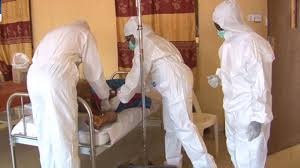It noted that of all confirmed cases Edo and Ondo had 38 per cent apiece while Ebonyi had 11 per cent, and the predominant age group affected was 11 to 40 years. The male to female ratio was 1:1.
A director of Public Health in Enugu State, Dr. Boniface Okolo, had warned Nigerians to desist from soaking garri, which is highly exposed to the deadly disease.
For the past five years, the northern district of Ondo, particularly Owo town and neighbouring communities, suffer recurring outbreak of Lassa fever almost yearly, leaving the people of the areas in fears.
A source within one of the hospitals, who pleaded anonymity, said patients had been affected by the deadly disease.
He disclosed further that there were more reported cases at the Federal Medical Centre, Owo, which was mapped out by Federal Government and CDC as treatment centre; and other state government hospitals.
Meanwhile, malaria, yellow fever, dengue fever, Zika virus and other mosquito-borne diseases may soon be wiped out, as scientists have demonstrated how mosquitoes can be genetically engineered to stop spreading dengue fever to humans.
The study was published yesterday in the journal, PLOS Pathogens.
Working in a lab, scientists at the University of California, San Diego, United States (U.S.), created mosquitoes, which were immune to the tropical disease and therefore unable to pass it on through bites.
They injected the insects with human immune system proteins, which were able to fight off all four strains of dengue. These proteins stopped the virus from multiplying inside the mosquito, meaning it never became strong enough to be transmitted.
The scientists implanted the dengue immune proteins called antibodies into female mosquitoes.
According to previous studies, the body creates antibodies naturally and that is what enables the immune system to destroy bacteria and viruses by itself without medical help.
But someone must become infected with, or exposed to, an illness before the body is able to develop them, which is risky with such a deadly disease.
The researchers found that putting human dengue antibodies into mosquitoes stopped the disease spreading among the insects.
And by engineering the genes of the insects to make sure those with the antibodies inside them were successful breeders, researchers said it would be possible to make this immunity spread through the wild population of the insects.
Prof. Omar Akbari, who led the study, said: “Once the female mosquito takes in blood, the antibody is activated and expressed – that’s the trigger.
“The antibody is able to hinder the replication of the virus and prevent its dissemination throughout the mosquito, which then prevents its transmission to humans. It’s a powerful approach.
“It is fascinating that we now can transfer genes from the human immune system to confer immunity to mosquitoes.”
Previous attempts had only managed to tackle single strains.
The World Health Organisation (WHO) had in November 2019 announced that a technique that sterilises male mosquitoes using radiation would soon be tested as part of global health efforts to control diseases such as chikungunya, dengue and Zika.
The Sterile Insect Technique (SIT) is a form of insect birth control. The process involves rearing large quantities of sterilised male mosquitoes in dedicated facilities, and then releasing them to mate with females in the wild. As they do not produce any offspring, the insect population declines over time.
According to WHO, dengue threatens the health and lives of millions of people living in hot countries, including Nigeria, every year.
source: TheGuardian

 Lassa fever has killed 14 persons, infected 82 others in seven states and 13 councils in the country. The states include Ondo, Edo, Ebonyi, Taraba, Plateau, Bauchi and Ogun.
Lassa fever has killed 14 persons, infected 82 others in seven states and 13 councils in the country. The states include Ondo, Edo, Ebonyi, Taraba, Plateau, Bauchi and Ogun.







